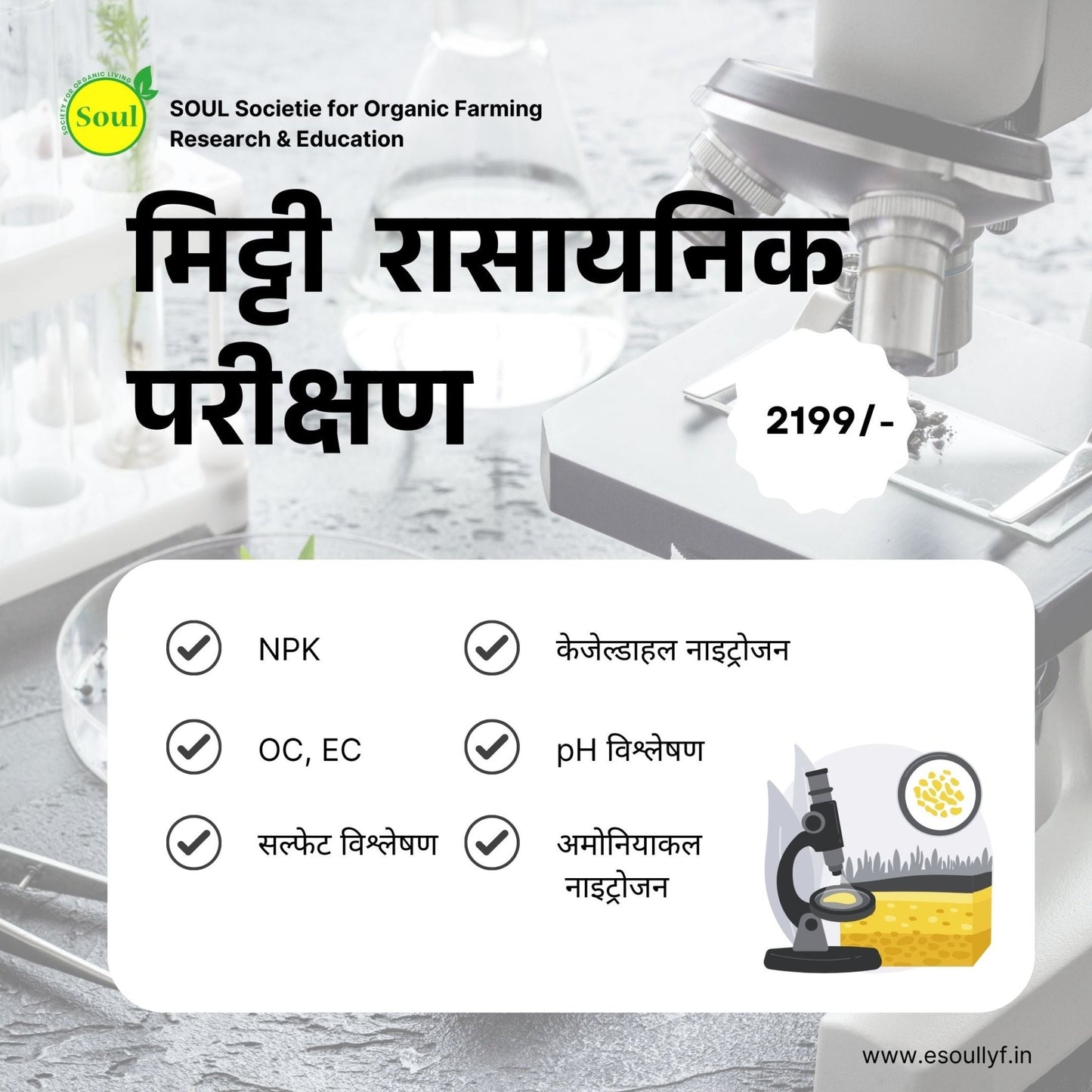Why SOIL tests are Important?
FAQs: Choosing the right SOIL test
Q: How do I know which test I need?
- If you’re starting a new farm, begin with Basic Soil Health Tests.
- For nutrient-specific concerns, opt for Macronutrient or Micronutrient Analysis.
- If plants are showing unusual growth issues, consider Soil Microbiology or Contamination Screening.
- For areas with irrigation concerns, test for Sodium Absorption Ratio (SAR) and Water Retention/Drainage issues.
- If you suspect contamination from heavy metals or pesticides, select the Contamination Screening Test.
- For sodic soils or areas with structural issues, choose a test that includes Gypsum Requirement Analysis to address soil improvement needs.
- If you're pursuing organic certification or want to improve soil fertility sustainably, a test for Organic Matter and Carbon Content will be ideal.
Q: How often should I test my soil?
- Annually for most cases, especially before planting or applying fertilizers.
- More frequently for intensive farming or in areas prone to contamination.
Q: Can I test soil for organic certification?
Yes, our Organic Matter and Carbon Content Tests can support organic certification requirements.
Q: Can you test for heavy metal contamination?
Yes, our Contamination Screening includes testing for harmful heavy metals like lead, mercury, and cadmium.
Q: How can AI technology enhance soil testing?
- AI technology enables precise analysis of soil parameters, providing accurate and actionable insights.
- It facilitates efficient data processing, leading to quicker turnaround times for soil test reports.
Q: Why is testing for both macronutrients and micronutrients important?
While macronutrients are required in larger quantities, micronutrients are equally vital for plant health. Deficiencies or excesses in either can lead to poor crop performance.
Q: What is the significance of Cation Exchange Capacity (CEC)?
- CEC indicates the soil's ability to hold and exchange essential nutrients.
- A higher CEC value generally means the soil can retain more nutrients, making them available for plant uptake.
Q: What is the significance of measuring Organic Carbon (OC) in soil?
Organic Carbon indicates the amount of carbon stored in soil organic matter, reflecting soil fertility and its capacity to support plant growth.
Q: How does soil pH affect plant growth?
Soil pH influences the availability of nutrients to plants. Certain nutrients become less available in overly acidic or alkaline soils, potentially hindering plant growth.
Q: How does the Sodium Absorption Ratio (SAR) affect soil health?
High SAR values indicate elevated sodium levels, which can deteriorate soil structure, reduce permeability, and impede plant growth.
Q: What is the significance of determining gypsum requirements?
Identifying gypsum needs helps in reclaiming sodic soils by replacing excess sodium with calcium, thereby improving soil structure and fertility.
Q: How can I use the information from this analysis to improve crop yield?
By addressing the specific nutrient and amendment recommendations provided, you can create an optimal growing environment, leading to improved crop yields and quality.
Investing in our Premium Soil Analysis Package empowers you with the knowledge to make informed decisions, ensuring the long-term health and productivity of your soil.
Q: Why Choose Us for SOIL Testing?
- Accurate Results: State-of-the-art labs and rigorous methodologies ensure reliable data.
- Customized Recommendations: Actionable insights tailored to your soil's needs.
- Sustainability-Focused: Our tests support eco-friendly and sustainable soil management practices.
SOIL tests we offer
1. Basic Soil Health Tests
These tests focus on the foundational aspects of soil health:
- pH Testing: Determines the acidity or alkalinity of the soil.
- Macronutrient Testing: Analyzes primary nutrients like Nitrogen (N), Phosphorus (P), and Potassium (K).
- Soil Texture Analysis: Identifies soil composition (sand, silt, clay) to assess water retention and drainage.
2. Micronutrient Analysis
Micronutrients like Zinc, Iron, and Copper are essential for plant health but are required in smaller amounts. This test helps detect deficiencies that may affect growth and yield.
3. Organic Matter and Carbon Content
Understand the organic content in your soil and its ability to store carbon, which impacts fertility and water retention.
4. Contamination Screening
Detect the presence of harmful substances such as heavy metals (lead, cadmium) or pesticides to ensure soil safety for agriculture and human health.
5. Soil Microbiology Tests
Gain insights into the microbial activity and diversity in your soil, which play a crucial role in nutrient cycling and plant health.
6. Water Retention and Drainage Tests
Assess the soil’s ability to retain moisture or drain effectively, critical for crop-specific planning.
How to take SOIL samples
Instruction video to see how to take soil samples: https://youtu.be/Sl-JKI1D_Uw
Featured SOIL tests
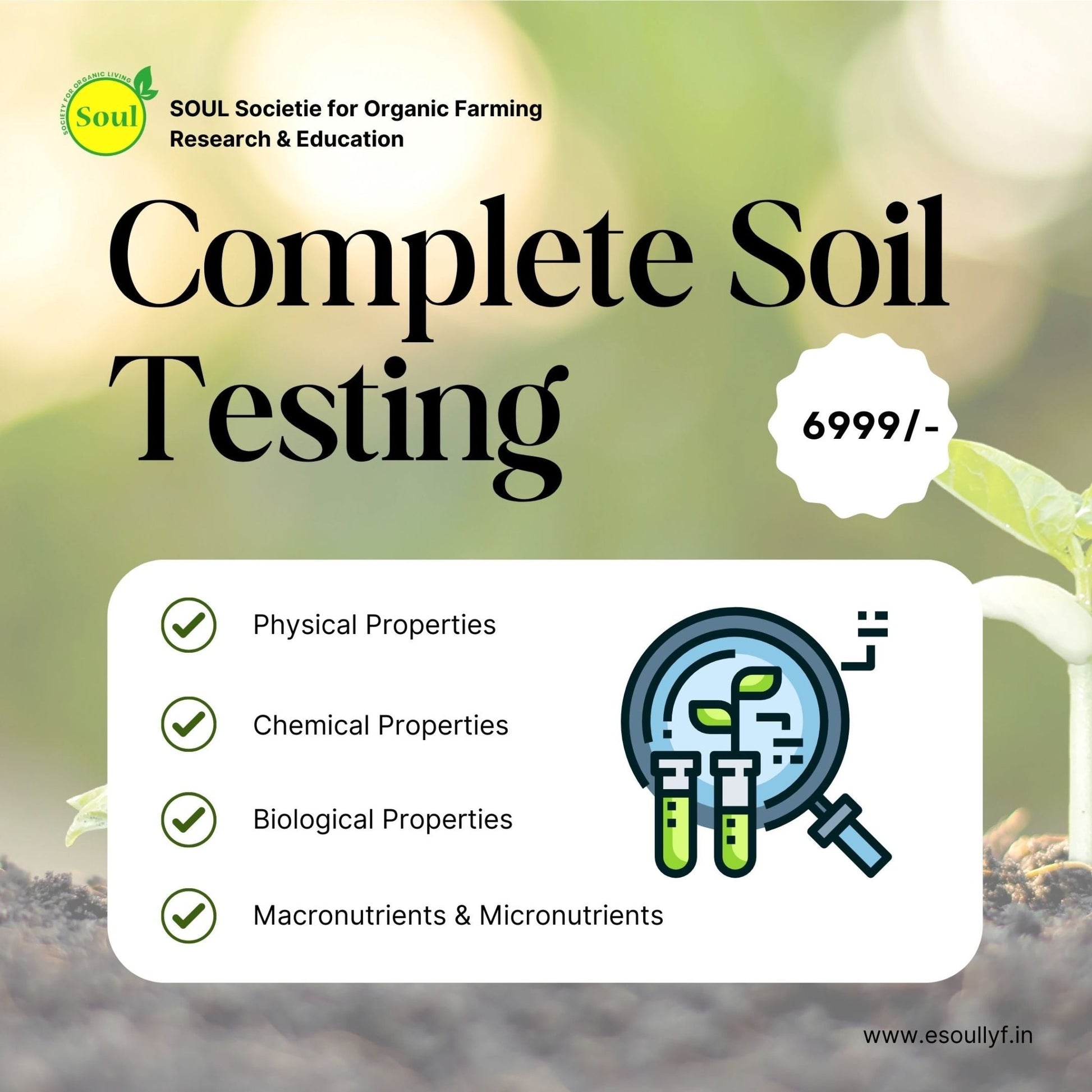
Complete Soil Test

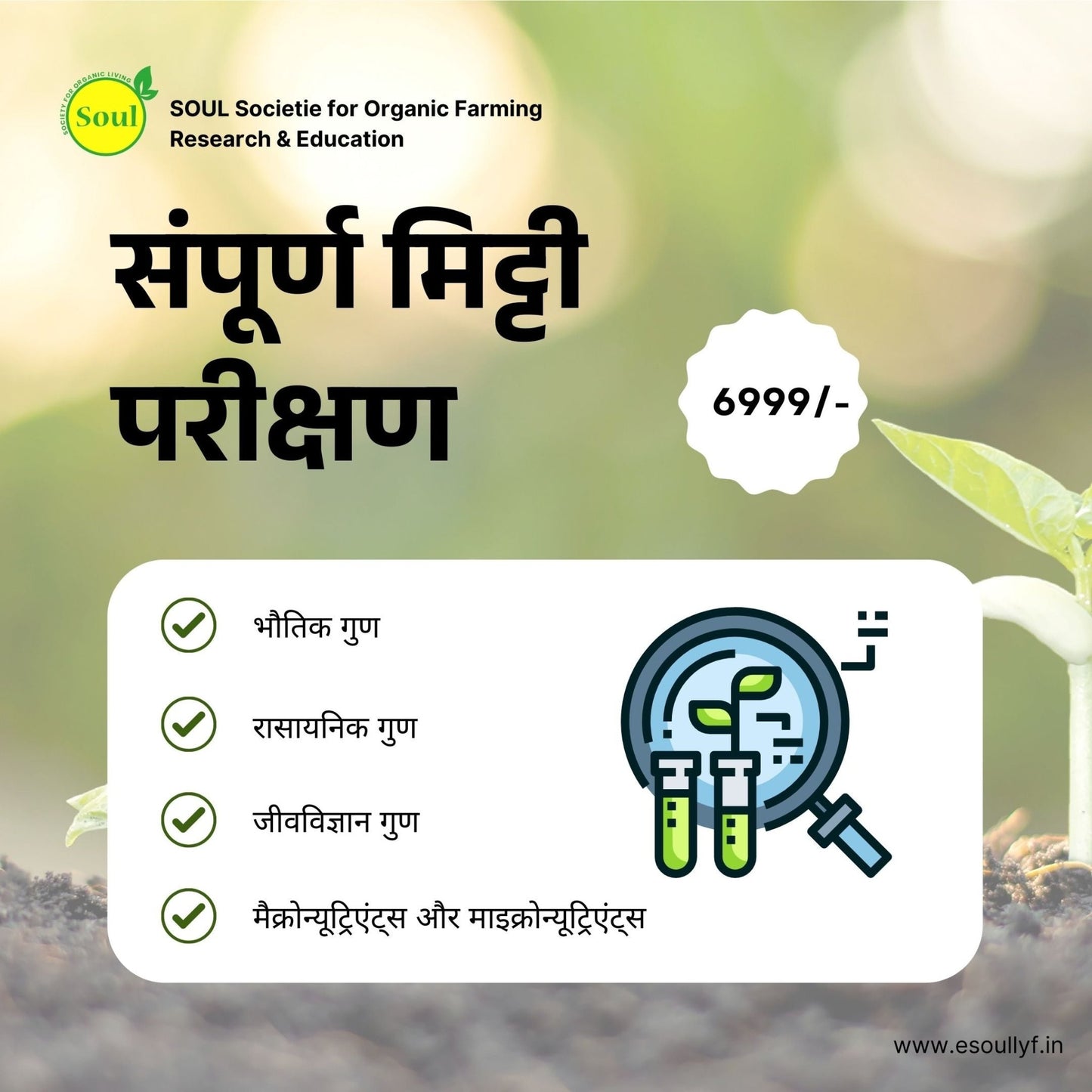
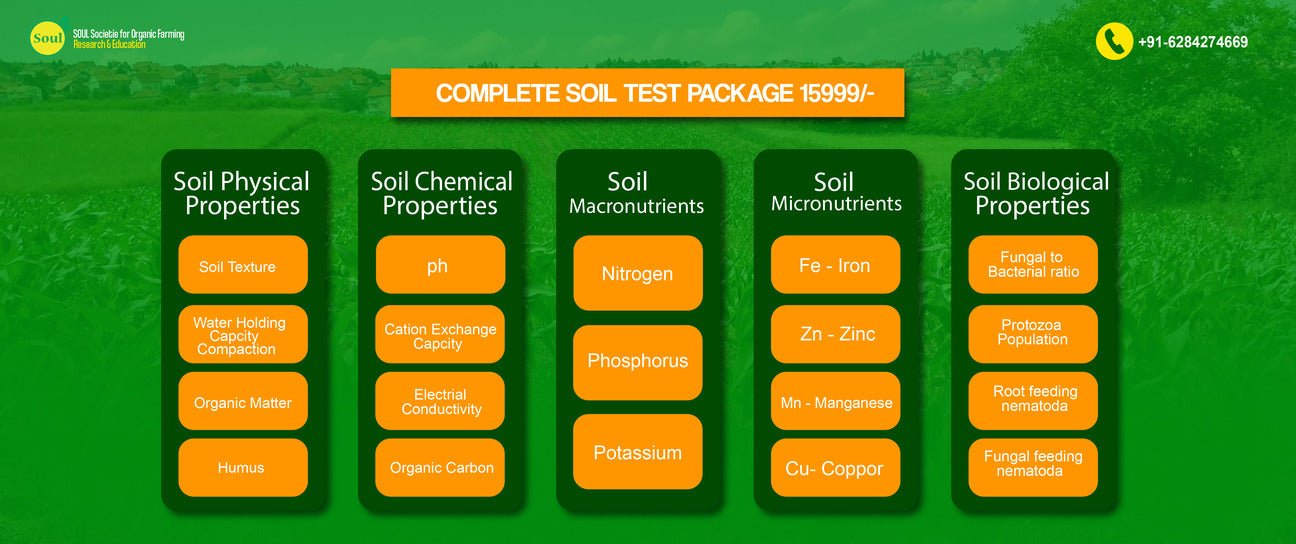
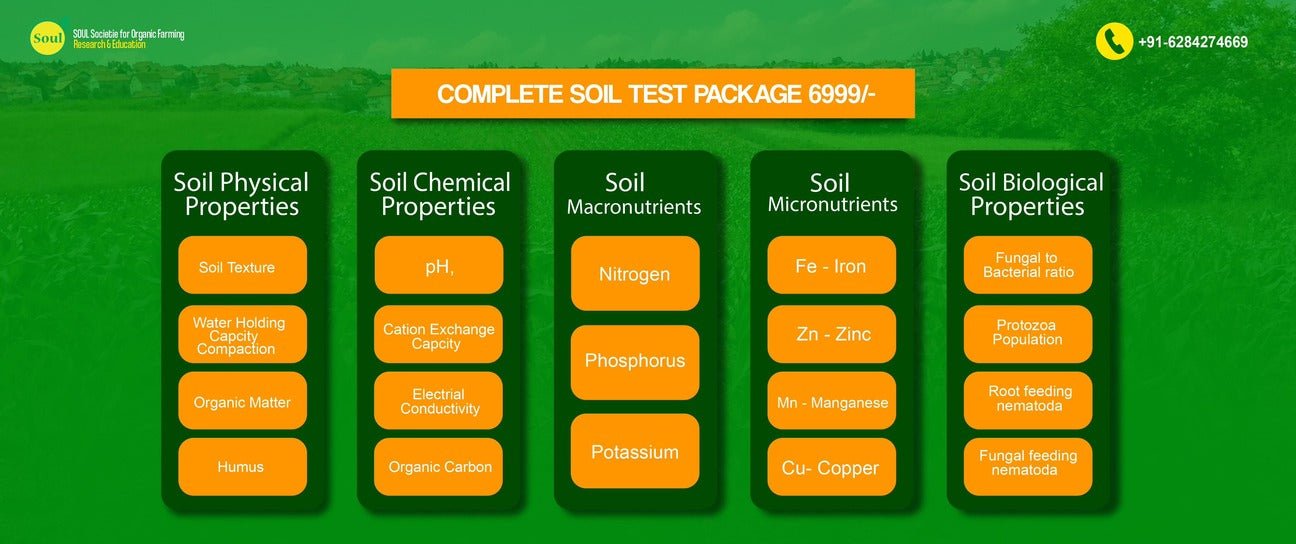

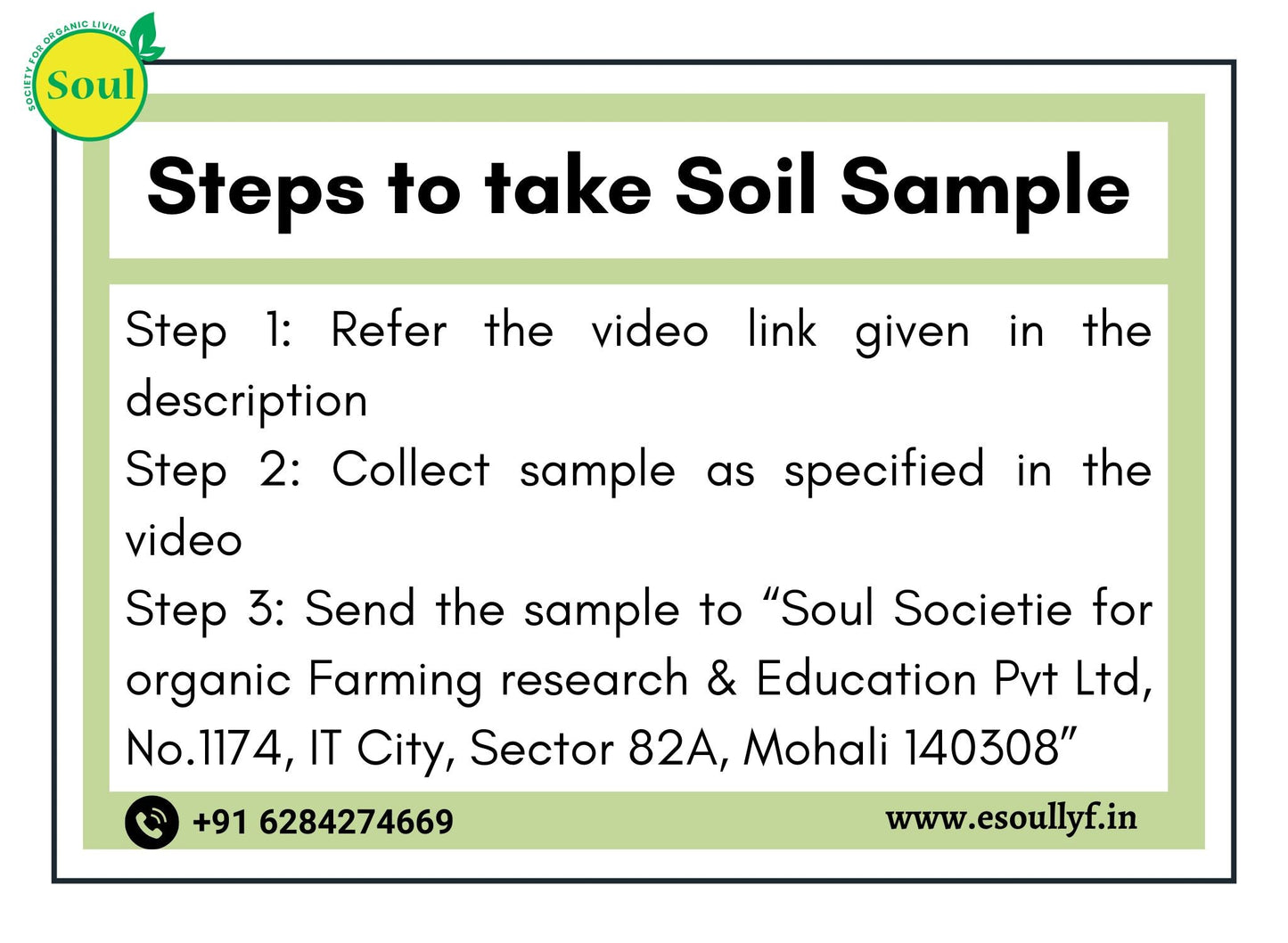
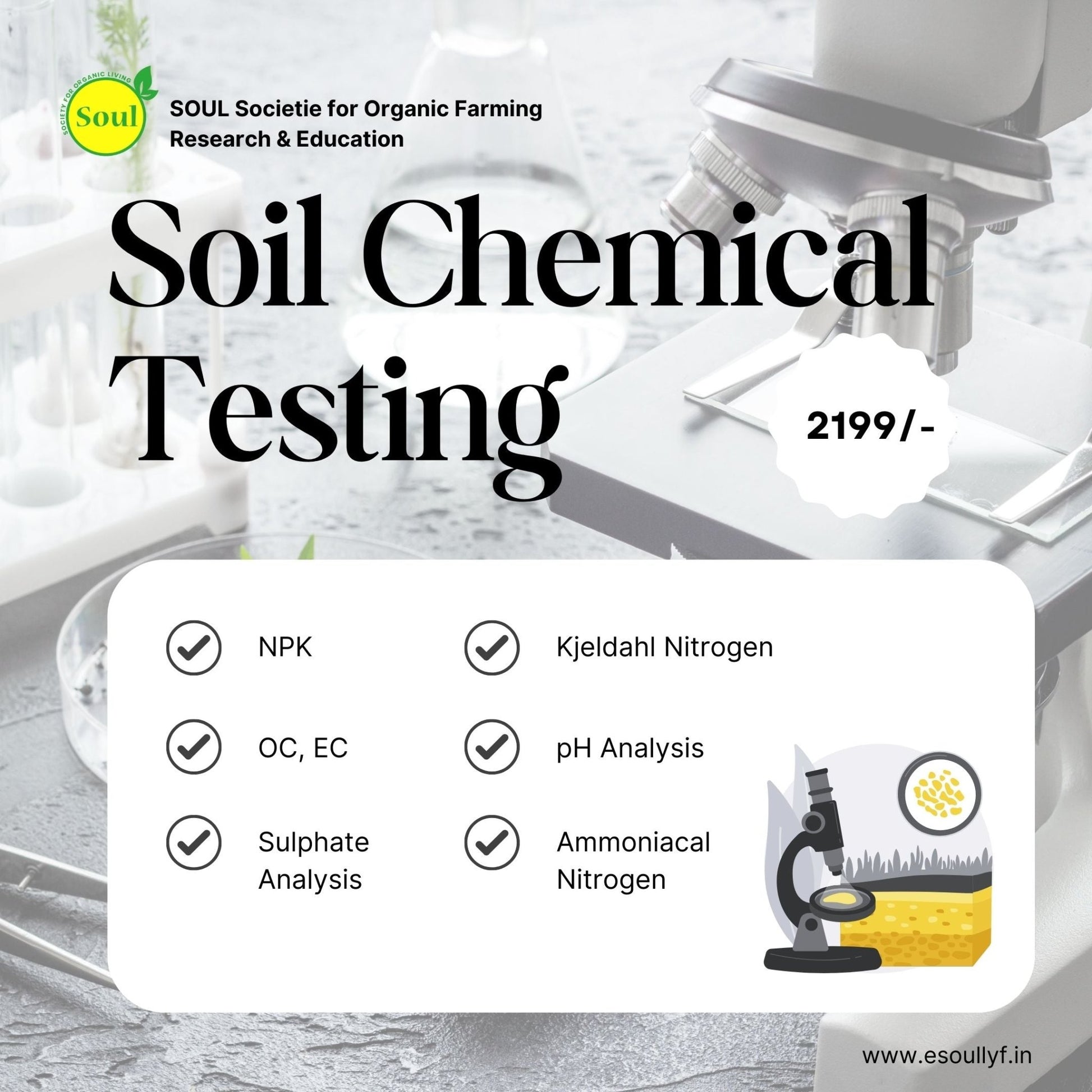
Soil Chemical Test


